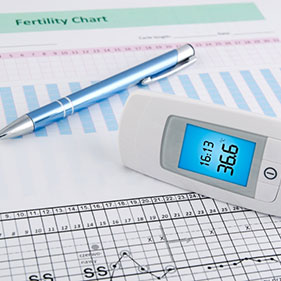MD Bill Proposes Reproductive Technology Provision

More and more, estate planning includes the drafting of special provisions tailored to non-traditional - but increasingly common - family arrangements. Of the many couples and individuals who have recently adopted children or are considering it, a certain number have taken - and are now taking - advantage of modern reproductive technology in order to conceive a child. Many of these people come to us with legitimate concerns about how best to provide for the future care and needs of their child (or children) in their estate plan, especially when the development of new reproductive technology seems to be outpacing the development of Maryland (and other state’s) law.
Once considered non-traditional, adoption has become a commonly accepted practice. According to a New York-based nonprofit devoted to improving adoption policy and practice, over a half million children currently living in the United States are adopted, and 60 percent of Americans have either been through the adoption process or know someone who has. Maryland’s very first law on adoption stated that the term “child” in a written instrument (such as a will or deed) included any child adopted by the person executing the instrument unless the instrument stated otherwise. A 1947 Maryland law expressly recognized the rights of both the adoptive parents and the adopted child. Among other things, this law clearly provided for the adopted child’s rights to inherit from the adopting parent. In addition, it extended the meaning of “child” to apply to all instruments, not just those executed by the adoptive parent.
In 1951, in Gutman v. Safe Deposit & Trust Co., 198 Md. 39, the Maryland Court of Appeals ruled that the 1947 law should not be applied retroactively to the estates of persons who died prior to the statute’s effective date. Section 4-414 of the Estates and Trusts Article of the Maryland Code, which reflects post-Gutman changes in Maryland law, provides that unless a will executed on or before May 31, 1947 clearly indicates otherwise, “child,” “descendant,” “heir,” “issue” or any equivalent term in the will includes an adoptee if, on or after January 1, 1945, a court entered an interlocutory order for adoption or, if none, a final order for adoption.
With the adopted child having clearly been afforded all the rights, privileges and duties of a child under Maryland law, the Maryland legislature has turned its attention toward children resulting from the use of new reproductive technologies.
On March 30 and April 1 of this year, the Maryland Senate and House passed House Bill 101 (HB 101), sponsored by Delegates Pena-Melnyk, Anderson Costa, and Hubbard, entitled “Posthumous Use of Donor Sperm and Eggs.” Unless HB 101 is vetoed by the Governor, it will expand, for the purposes of specified provisions of law regarding inheritance, the definition of a “child” to include a child conceived from the genetic material of a person after the death of that person if the person consented in a written record (1) to such use; and (2) to be the parent of such a child. The consent to the use of one’s genetic material for the purpose of posthumous conception must be given on or after October 1, 2012. It has to be in writing and requires the signature of the donor or another person in the donor’s presence and at the donor’s express direction. It does not, however, need to be witnessed or notarized. These minimal formal requirements do not apply to the written consent to be treated as the parent of the posthumously conceived child.
If an individual dies intestate (i.e., without a will), the bill specifies that his or her relative may be entitled to distribution as long as the following conditions are met. The decedent, who may not be the individual who dies intestate, but may be an ancestor or descendant of the intestate individual, must have provided in a written record signed by the decedent on or after October 1, 2012 for the use of his or her genetic material for posthumous conception. He or she must have consented in writing to be the parent of a child posthumously conceived using the person’s genetic material. And the posthumously conceived child must be born within two years of the decedent’s death.
Apart from HB 101, no Maryland law or regulation currently addresses the posthumous use of donor sperm and eggs in spite of the fact that both can be cryogenically preserved for years. As acknowledged in the associated Fiscal and Policy Note, there have been media reports of live births resulting from sperm that had been donated more than 20 years earlier. Because the bill raises many practical questions for estate planning attorneys, we are closely tracking the legislation and encouraging those of our clients considering assisted reproduction to do the same. In the meantime, our attorneys take pride in our ability to craft provisions in our estate planning documents to accommodate unconventional family arrangements and our willingness to stay abreast of some of the latest advances in reproductive technologies insofar as this may permit us to better serve our clients.
